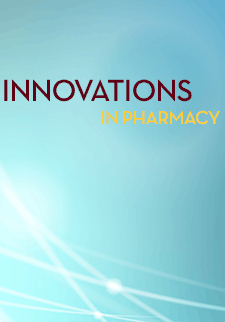Efficacy and Safety of Innovative Experimental Chimeric Antigen Receptor (CAR) T-cells versus Axicabtagene ciloleucel (Yescarta) for the Treatment of Relapsed/Refractory Large B-Cell Lymphoma (LBCL): Matching Adjusted Indirect Comparisons (MAICs) and Systematic Review
Bayarmagnai Weinstein
Principles and Practice of Clinical Research Program, ECPE, Harvard T.H. Chan School of Public Health and Department of Environmental Health Sciences, School of Public Health, University at Albany, USA
Bogdan Muresan
Health Sciences Unit, University of Groningen, University Medical Center Groningen, The Netherlands
Sara Solano
Principles and Practice of Clinical Research Program, ECPE, Harvard T.H. Chan School of Public Health, USA
Antonio Vaz de Macedo
Principles and Practice of Clinical Research Program, ECPE, Harvard T.H. Chan School of Public Health, USA and Hematology Clinic, Hospital da Polícia Militar, Belo Horizonte, MG, CEP, Brazil
YoonJung Lee
Department of Pharmaceutical Sciences, School of Pharmacy, Texas Tech University Health Sciences Center, USA
Yu-Chen Su
Inari Medical, Biostatistics and Programming Dept, USA
Yeseul Ahn
Department of Pharmaceutical Sciences, School of Pharmacy, Texas Tech University Health Sciences Center, USA
Gabriela Henriquez
Principles and Practice of Clinical Research Program, ECPE, Harvard T.H. Chan School of Public Health, USA and Iberoamerican University, Santo Domingo, Dominican Republic
Christina Carmago
School of Medicine, Univesida de São Paulo, Brazil
Gwang-Jin Kim
Institute of Experimental and Clinical Pharmacology and Toxicology, Faculty of Medicine, University of Freiburg, Germany
David O. Carpenter
Department of Environmental Health Sciences, School of Public Health, University at Albany and Institute for Health and the Environment, University at Albany, Rensseelaer, NY, USA
DOI: https://doi.org/10.24926/iip.v12i4.4345
Keywords: Chimeric Antigen Receptor (CAR), Diffuse Large B Cell Lymphoma (DLBCL), Lymphoma, Comparative Effectiveness Study, Matching Adjusted Indirect Comparison, Systematic Literature Review, Axicabtagene ciloleucel (Yescarta)
Abstract
Despite favorable results of CAR T-cell therapy for relapsed/refractory large B-cell lymphoma (R/R LBCL), several challenges remain, including incomplete response, immune-mediated toxicity, and antigen-loss relapse. We delineated the relative clinical benefit of the novel approaches compared to the currently approved CAR T-cell therapies. In the absence of head-to-head comparisons and randomized controlled trials, we performed Matching Adjusted Indirect Comparisons to quantify the relative efficacy and safety of experimental CARs against Axicabtagene ciloleucel (Yescarta), the first FDA-approved CAR. A total of 182 R/R LBCL patients from 15 clinical trials with individual patient data (IPD) were pooled into eight populations by their CAR T-cell constructs and +/- ASCT status. The study endpoints were Progression-Free Survival (PFS), grade ≥ 3 cytokine release syndrome (CRS), and grade ≥ 3 neurotoxicity (NT). Tandem CD19.CD20.4-1BBζ CARs indicated favorable efficacy and safety, whereas the co-infusion of CD19 & CD20 with 4-1BBζ showed no clinical benefit compared to Yescarta. Third generation CD19. CD28. 4-1BBζ, and sequential administration of autologous stem cell transplantation (ASCT) and CD19. CARs presented statistically insignificant yet improved PFS and safety except for ASCT combined intervention which had suggestively higher NT risk than Yescarta. CARs with modified co-stimulatory domains to reduce toxicity (Hu19. CD8.28Zζ and CD19. BBz.86ζ) presented remarkable safety with no severe adverse events; however, both presented worse PFS than Yescarta. Third-generation CARs demonstrated statistically significantly lower NT than Yescarta. CD20. 4-1BBζ data suggested targeting CD20 antigen alone lacks clinical or safety benefit compared to Yescarta. Further comparisons with other FDA-approved CARs are needed.



